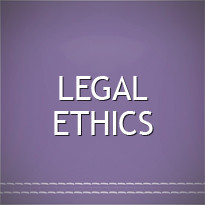Justice Ruben Reyes was the original ponente of G.R. Nos. 178831-32, G.R. No. 179120, G.R. Nos. 179132-33, and G.R. Nos. 179240-41. These cases were consolidated. These cases sought the disqualification of Jocelyn Limkaichong as candidate for a congressional seat for Negros Oriental. Limkaichong was disqualified but she was already proclaimed and had already assumed office as a member of Congress. Hence, the issue on who has jurisdiction on her qualifications was elevated to the Supreme Court.
In July 2008, the Supreme Court en banc deliberated on the ponencia of Justice Reyes. His draft was adverse to Limkaichong. After the deliberation, seven out of thirteen justices signified that they are concurring in the result. Later, two more justices manifested the same. Nevertheless, the Justices agreed to hold further deliberations in order for their decision to have doctrinal value. The Justices assessed that the case is of significant importance considering that an elected member of Congress (Limkaichong) is to be removed: “any decision ousting a sitting member of the House of Representatives should spell out clearly the legal basis relied upon by the majority for such extreme measure.”
Now in December 2008, Louis Biraogo, one of those who protested against Limkaichong, held a press conference and he accused the Supreme Court of unduly withholding the promulgation of the decision against Limkaichong. Biraogo presented a photocopy of the draft made by Justice Reyes.
ISSUE: Whether or not the leakage of the decision is proper.
HELD: No. The unpromulgated decision is a confidential matter.
The New Code of Judicial Conduct provides that confidential information acquired by justices and judges in their judicial capacity shall not be used or disclosed for any other purpose not related to their judicial duties. The Code of Conduct for Court Personnel likewise devotes one whole canon on confidentiality, to wit:
SECTION 1. Court personnel shall not disclose to any unauthorized person any confidential information acquired by them while employed in the judiciary, whether such information came from authorized or unauthorized sources.
Confidential information means information not yet made a matter of public record relating to pending cases, as well as information not yet made public concerning the work of any justice or judge relating to pending cases, including notes, drafts, research papers, internal discussions, internal memoranda, records of internal deliberations and similar papers.
The notes, drafts, research papers, internal discussions, internal memoranda, records of internal deliberations and similar papers that a justice or judge uses in preparing a decision, resolution or order shall remain confidential even after the decision, resolution or order is made public.
After investigation, the Supreme Court found that it was Justice Reyes himself who caused the leakage. The peculiar features of the draft copy that he has is the same as the features seen in the photocopy presented by Biraogo to the media. Justice Reyes was found guilty of Grave Misconduct and was fined Php500k. He was also directed to explain why he should not be disbarred.
NOTE: Justice Reyes retired on 02 January 2009 (before promulgation of this case which was 24 February 2009). The Limkaichong case was finally promulgated on 01 April 2009. The ponente was Justice Diosdado Peralta. The promulgated decision was favorable to Limkaichong.


